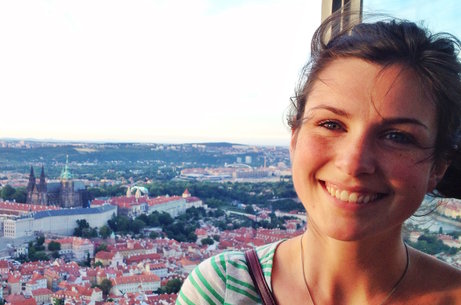
Erin Kara has been awarded a prestigious NASA fellowship to study the origins of the universe.
A Gates Cambridge Scholar has been awarded a prestigious NASA fellowship to study the origins of the universe.
Erin Kara [2011] has been awarded a Hubble Postdoctoral Fellowship. The Hubble is a NASA fellowship for research related to the NASA Cosmic Origins science goal, which seeks to answer the question “how did we get here”?
Every year, NASA awards up to 17 fellowships to outstanding recent PhD students to pursue their work studying some of the biggest questions of the Universe, including: how galaxies evolve in the Universe, how supermassive black holes form and what is the origin of Dark Matter.
The fellows get to decide which institution to take their fellowship at and Erin has decided to take the Hubble to the University of Maryland, where she has also been offered their Joint Space Institute Fellowship to work at both the university and NASA Goddard Space Flight Centre just a few miles away.
She says: “I will continue my work studying the innermost regions around black holes in order to understand how black holes grow and eject huge amount of energy that affect the development of the galaxies in which they reside. I do this by studying the region near the event horizon, where material is plunging into the black hole.”
As these environments are so small and far away, astrophysicists cannot simply take direct images of them. Instead, Erin will use a new technique called X-ray reverberation that has just been developed in the past five years. She adds: “Just as sound waves reverberate in a large auditorium, X-rays reverberate in the material that is spiralling around the black hole. Since we know that X-rays travel at the speed of light, we can convert this reverberation time delay into a distance to map out this very extreme environment close to the black hole.”
Her PhD research has focused on supermassive black holes and aimed to understand how black holes work and how they feed energy into the whole galaxy.












